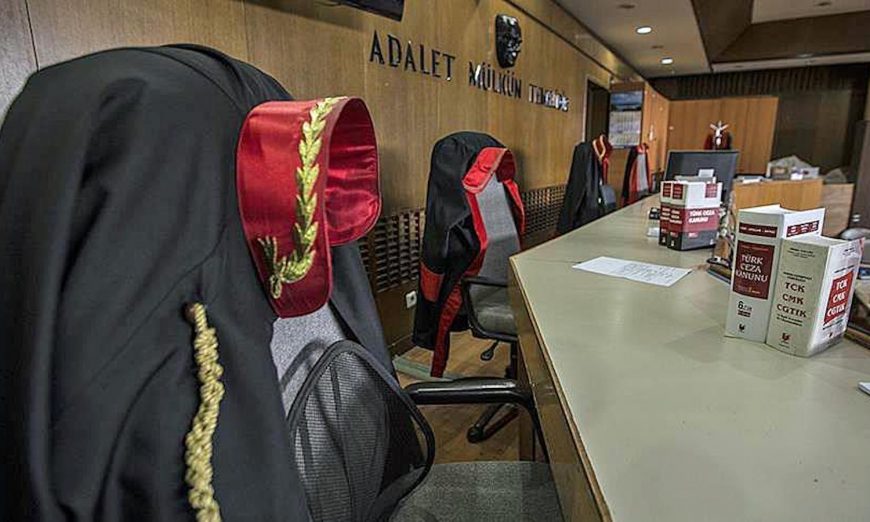Orhan Kemal Cengiz
ISTANBUL – Turkish Daily news
Friday, April 20, 2007
Most observers agree that the Turkish judiciary generally tends to be conservative and in favor of the state rather than being on the side of the individual when they come into conflict. Therefore, most of the time it is emphasized that in order to achieve sustainable development and change in Turkey, the mentality (not only the laws) should be changed. Actually, I totally agree with this view. Turkish laws, even the old ones, could have been interpreted in a completely different fashion by different judges that have a more a liberal approach when interpreting legal instruments. Therefore, changing laws does not automatically mean changing the practice in Turkey. Weall know this especially from cases that have involved freedom of expression issues.
If we look at what has been happening to an association established by judges and prosecutors, we would gain insight into how the system discourages the judiciary from being independent and civil.
The association that I am talking about is the Union of Judgesand Prosecutors (YARSAV), which was established by 501 judges and prosecutorsin 2006. Before 2004 it was not possible for judges and prosecutors to establish any organization but in that year the law of association was amended and a new avenue opened for them. From the very beginning they were confronted with a lot of problems. Actually it is quite ironic that such an association, where most members are high courts judges, experienced the same difficulties that other ordinary associations go through during the setting up process. When they delivered their charter to the association desk, the Ministry of Internal Affairs and the Justice Ministry intervened in the procedure and asked the Association Desk to reject the charter on various grounds. One of the objections was quite significant. The Ministry of Justice objected to the fact that this association could not defend the independence of the judiciary (one of the aims of the association) because this was exclusively the duty of the state. This reminds me of a famous quote from a well known conservative Turkish statesman: If communism is needed, we will bring it too.
Actually the if it is needed, we will bring it attitude continues and is entering into a more dangerous phase now. The Recep Tayyip Erdogan government is now about to introduce a new law called the Draft Law of Union of Judges and Prosecutors of Turkey which stipulates the closure of the existent organizations of judges and prosecutors. According to the temporary Article 2 of this law, the existence of the associations which were set up to realize the same or similar goals with the union will be ceased ex officio when this law enters into force. It is clear that this law is specifically targeting the judges and prosecutors’ organization. The law also forbids judges to be a member or founder of other associations. These provisions are obvious violations of Article 11 (the right to organize) of the European Convention of Human Rights.
Erdogan and his colleagues kept complaining about the status quoin Turkey but with this law, they are contributing to it. I hope the seprovisions will be taken out of the final draft.
Q & A
Acquiring Turkish citizenship
Acquiring Turkish citizenship is subject to different provisions depending on the situation of those who claim to want it. Citizenship and the ways of acquiring it are regulated by the Law of Nationality. According to Article 6 of this law, anyone who wants to acquire Turkish nationality:
a) Must be an adult according to his/her national law orto Turkish law if he/she is without nationality
b) Should have resided in Turkey for at least 5 years
c) Should prove with his/her behavior that he/she has the intention to settle in Turkey (For example, buying a house in Turkey, making business investment, etc.)
d) Must have good morals. (This is quite vague and I believe this cannot be applied unless the person concerned has a criminal record.)
e) Should not have a disease that endangers the general health of the society
f) Should be able to speak Turkish at an appropriate level
g) Should have enough income or a profession that can support him/her and the family members for whom he/she is responsible
Foreigners who meet these conditions can apply to the Council of Ministers, which will decide either to grant or refuse Turkish citizenship.
Individuals married to Turkish citizens may naturalize after three years of marriage if they fulfill conditions given by the law.
I will be happy to answer your questions on law in Turkey.
See you next week…
http://www.turkishdailynews.com.tr/editorial.php?ed=orhan_cengiz

